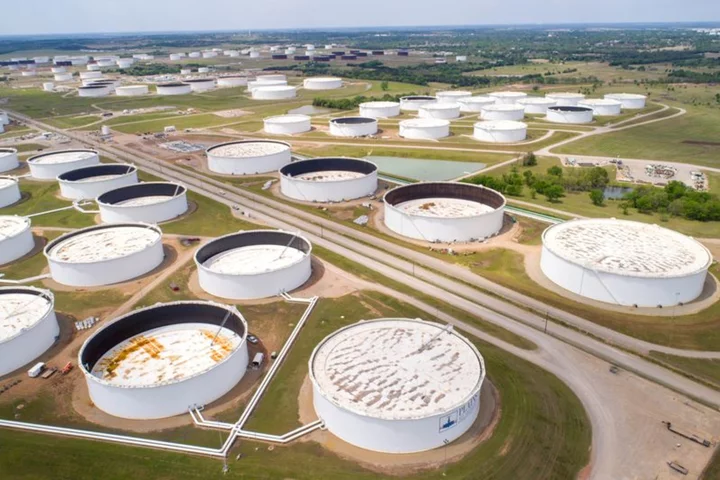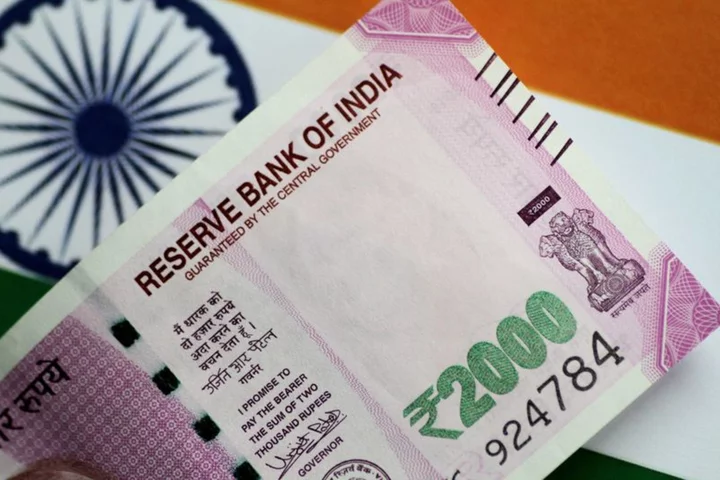By Erwin Seba
HOUSTON (Reuters) -Oil futures fell on Monday on reports the U.S. could soon reach a deal to ease sanctions on Venezuela if a presidential election date is set in that country, while traders see the Israel-Hamas conflict not affecting crude supplies in the short term.
Brent futures were down 79 cents, or 0.87%, at $90.10 a barrel at 12:01 p.m. CDT (1701 GMT). U.S. West Texas Intermediate (WTI) crude fell by 0.53 cents, or 0.6%, to $87.16 a barrel.
The U.S. and Venezuelan governments were getting ready to sign a pact in Barbados as early as Tuesday to ease U.S. sanctions on Venezuela's oil industry in return for a competitive, monitored presidential election in Venezuela next year.
"The reported deal ... would help to raise the country's oil output from very depressed levels," said William Jackson, chief emerging markets economist for Capital Economics.
"But the sector requires enormous investment to return output to the levels seen only a decade ago," Jackson said. "And this wouldn't materially affect the deficit in the global oil market in the near term. In the meantime, question marks hang over whether Venezuela's government sticks to its side of the deal."
Traders were optimistic the war between Israel and the Palestinian Islamist militant group would remain confined to the Gaza Strip.
"It's more of the same on Monday in terms of the conflict in the Middle East being contained from affecting crude oil supplies," said John Kilduff, partner with Again Capital LLC.
Both oil benchmarks had climbed nearly 6% on Friday, taking Brent 7.5% higher on the week and WTI up 5.9%.
Israeli air strikes on Gaza intensified on Monday, after diplomatic efforts to arrange a ceasefire in southern Gaza failed.
Diplomatic efforts to open the Rafah crossing at the Gaza-Egypt border were stymied on Monday. U.S. negotiators were trying to convince Egypt to allow some people to leave the territory before an expected Israeli ground offensive in retaliation for the Oct. 7 ground and air attacks by Hamas.
Russia has also entered the diplomatic fray, with President Vladimir Putin set to hold talks with Iran, Israel, Palestinians, Syria and Egypt.
Heightened tensions in the Middle East may have compounded other risk factors to push prices higher last week.
The United States last week imposed the first sanctions on owners of tankers carrying Russian oil priced above the Group of Seven's price cap of $60 a barrel, an effort to close loopholes in the mechanism designed to deprive Moscow of revenue for its energy sales.
"The sudden decision on tightening up of sanctions on ship owners carrying Russian crude over the $60/barrel limit by the U.S. started to niggle and so did the Russian/Saudi meeting concluded by President Putin stating that OPEC+ were achieving 'stability,'" said PVM analyst John Evans, referring to the price rises at the end of last week.
(Reporting by Erwin Seba in Houston; additional reporting by Robert Harvey in London, Yuka Obayashi in Tokyo and Emily Chow; Editing by Susan Fenton, David Evans, Deepa Babington, David Gregorio and Paul Simao)









